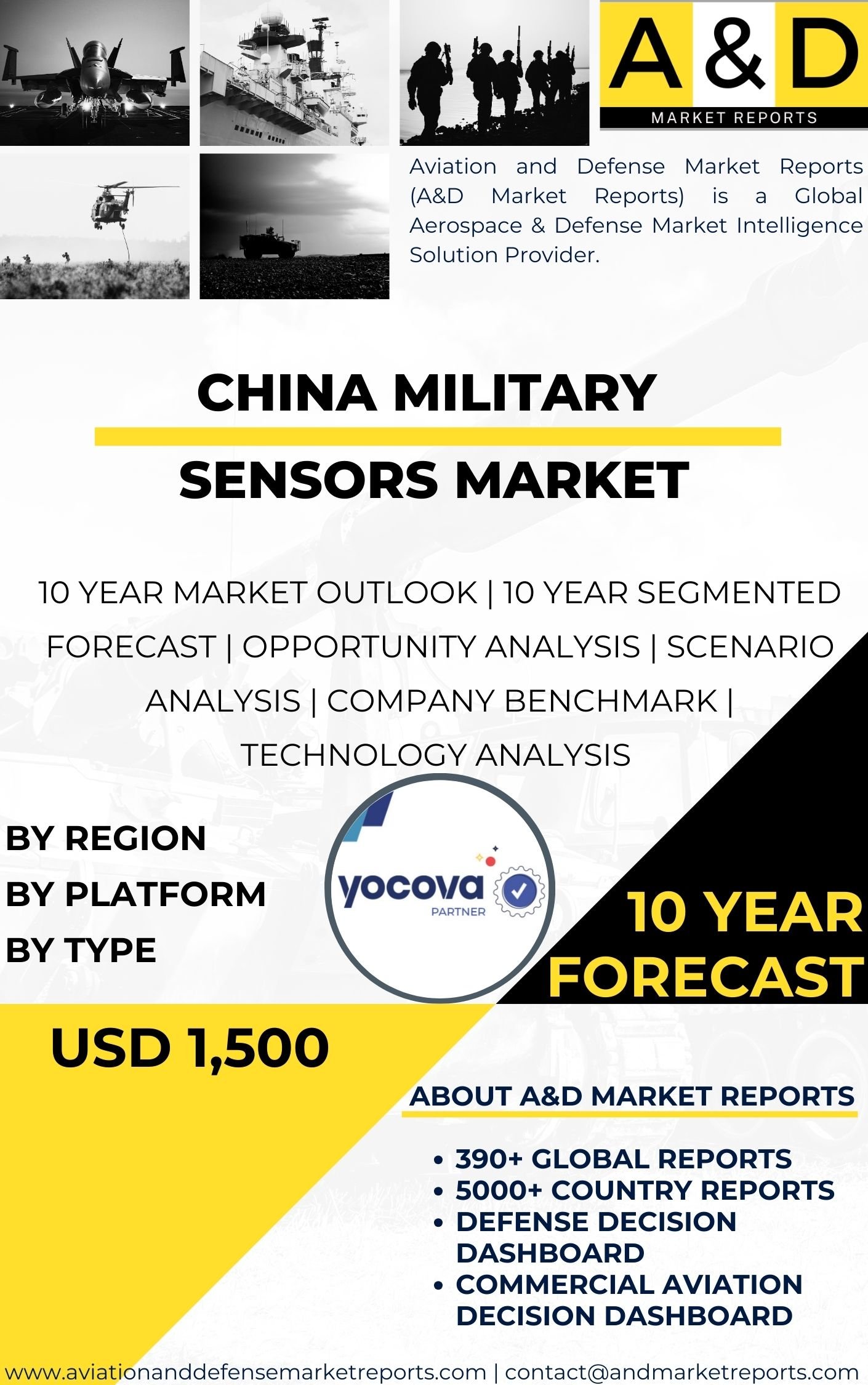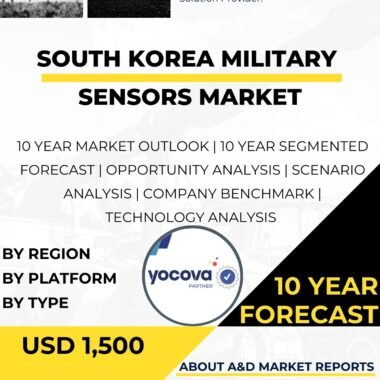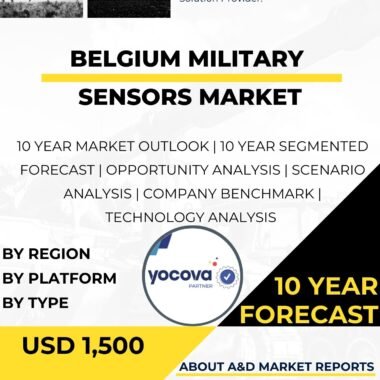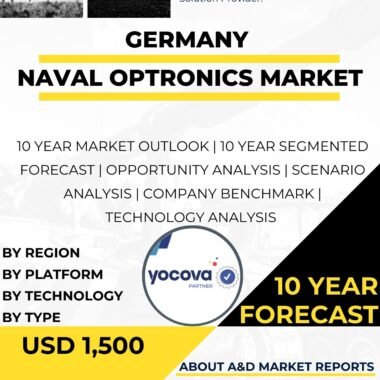Description
The China Military Sensors Market is a critical and rapidly expanding sector within the country’s defense industry. Military sensors play a crucial role in enhancing situational awareness, intelligence gathering, target detection, and tracking capabilities for military operations. These sensors encompass a wide range of technologies, including radar systems, electro-optical sensors, acoustic sensors, magnetic sensors, and chemical and biological sensors. China’s focus on military modernization, technological advancement, and information superiority has driven the growth and development of the Defense Military Sensors Market.
China has significantly invested in research and development to develop indigenous military sensor technologies. The country recognizes the strategic importance of advanced sensor capabilities in ensuring operational readiness, threat detection, and mission success. As a result, there has been a strong emphasis on the development of cutting-edge sensor systems to meet the specific requirements of military applications.
One of the key drivers of the China Military Sensors Market is the government’s push for technological self-sufficiency. China aims to reduce its dependence on foreign suppliers and enhance its domestic defense industrial base. To achieve this goal, significant investments have been made in research and development, leading to notable progress in the design and production of indigenous military sensors. Chinese defense companies, in collaboration with research institutes and universities, have been actively working on the development of sensor technologies to meet the specific requirements of military applications.
Furthermore, China’s growing military capabilities and the need for advanced sensor capabilities have fueled the development of military sensors. The country’s defense forces require sensors that can provide accurate and real-time information for target detection, surveillance, reconnaissance, and threat identification. Chinese defense companies have been actively engaged in developing and enhancing sensor systems to meet the demanding requirements of military applications, ensuring improved operational capabilities and information superiority.
Moreover, China benefits from a robust and well-established defense industrial base, which facilitates the development and production of military sensors. The country possesses several state-owned and private companies with expertise in sensor technology, electronics, signal processing, and data analytics. These companies have the infrastructure, resources, and technical know-how to design, develop, and produce state-of-the-art military sensors. The presence of a strong industrial base promotes collaboration and knowledge sharing, further boosting the growth of the Defense Military Sensors Market.
Additionally, the China Defense Military Sensors Market has witnessed increasing integration of advanced technologies. Chinese defense companies have been at the forefront of incorporating technologies such as artificial intelligence, machine learning, and data fusion into military sensor systems. These technologies enable faster and more accurate data processing, improved target recognition, and enhanced operational capabilities.
Furthermore, the China Defense Military Sensors Market has gained strategic importance due to the country’s focus on information warfare and network-centric warfare. China recognizes the significance of intelligence gathering, surveillance, and target tracking in modern warfare and invests in developing sensor systems that support these capabilities. The integration of sensor systems with other elements of the information warfare domain enhances China’s capabilities in conducting hybrid and asymmetric warfare.
However, the China Defense Military Sensors Market also faces challenges. Quality, reliability, and performance are crucial considerations as Chinese defense companies strive to meet the standards set by established international sensor manufacturers. Continuous investments in research and development, as well as quality control and assurance processes, are necessary to gain the trust of domestic and international customers.
Additionally, adapting to evolving battlefield requirements, such as increased range, improved resolution, reduced size, and power consumption, poses challenges in terms of technology integration and cost-effectiveness. Chinese defense companies must address these challenges to ensure that their sensor systems remain technologically advanced, operationally effective, and commercially competitive.
In conclusion, the China Military Sensors Market is witnessing rapid growth and development. The government’s focus on technological self-sufficiency, combined with investments in research and development, has led to significant advancements in indigenous military sensor technologies. China’s growing military capabilities, robust defense industrial base, and integration of advanced technologies contribute to its position as a competitive player in the global military sensors market. Addressing quality control, technological advancements, and promoting international collaborations will be crucial for further growth and success in this dynamic sector.




